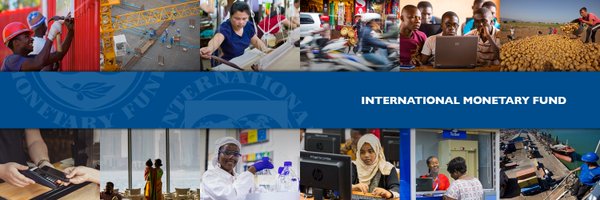 (AGENPARL) - Roma, 27 Maggio 2022
(AGENPARL) - Roma, 27 Maggio 2022(AGENPARL) – ven 27 maggio 2022 The latest IMF analysis of global economics, finance, development and policy issues shaping the world. []
[IMF Weekend Read]
Dear Colleague,
In today’s edition, we discuss how fragmentation is hindering the global response to a “confluence of calamities” besetting the world economy, globalization and resilience, the Middle East and North Africa’s divergent recoveries, Chile’s $3.5-billion liquidity line, corporate debt, inflation drivers and expectations, “nowcasting” in developing economies, and much more.
Global Outlook
Why Countries Must Cooperate on Carbon Prices
(PHOTO: IMF)
Today’s “confluence of calamities” represents perhaps the greatest test for the global economy since the Second World War, IMF Managing Director Kristalina Georgieva said on the eve of this week’s World Economic Forum in the Swiss resort of Davos.
“To restore trust that the rules-based global system can work well for all countries, we must weave our economic fabric in new and better ways.”
Middle East and North Africa
(PHOTO: IMF PHOTO/RYAN-RAYBURN)
The war in Ukraine and related sanctions have triggered a sharp increase in commodity prices, which will add to the challenges facing countries in the Middle East and North Africa—particularly the region’s oil importers.
–Food prices: Food prices accounted for about 60 percent of last year’s increase in headline inflation in the Middle East and North Africa, excluding the countries of the Gulf Cooperation Council. The blog authors say inflation is likely to remain elevated this year at 13.9 percent—a significant upward revision relative to previous projections in October.
The situation is particularly concerning for fragile and conflict-affected states. Overall, rising food prices and potential wheat shortages affect the poor more because they allocate a higher share of their expenditure to food. This will add to poverty and inequality and heighten the risk of social unrest, the authors say.
(PHOTO: ISTOCK/PIXELPROF)
“As for the financial crisis, most of them underestimated the risks of financial globalization, and when it came to the pandemic, most overestimated the risks of sprawling, intricate production networks and trade globalization,” they write.
“As the Russian invasion of Ukraine and the sweeping sanctions that followed now threaten to ignite a third great crisis, it’s important to understand where economic analysis goes wrong and the adjustments practitioners need to make to get things right.”
[FandD gif]
COMING SOON
Geoeconomic Puzzle: Policymaking in a More Fragmented World. F&D’s June edition will focus on the economic dimensions of the current geopolitical situation, including the war in Ukraine, refugees, and food prices. Authors include Tharman Shanmugaratnum, Pierre-Olivier Gourinchas, Eswar Prasad, Raj Chetty, Barry Eichengreen, Patricia Clavin, and many others.
—————————————————————
(PHOTO: CENTRAL BANK OF CHILE)
(PHOTO: IMF)
(PHOTO: IMF)
(PHOTO: IMF)
WEEKLY ROUND-UP
—————————————————————
MARK YOUR CALENDAR
—————————————————————
[headshot]
Nick Owen
Editor
IMF Weekend Read
Thank you again very much for your interest in the Weekend Read! Be sure to let us know what issues and trends we should have on our radar.
Connect on Social

